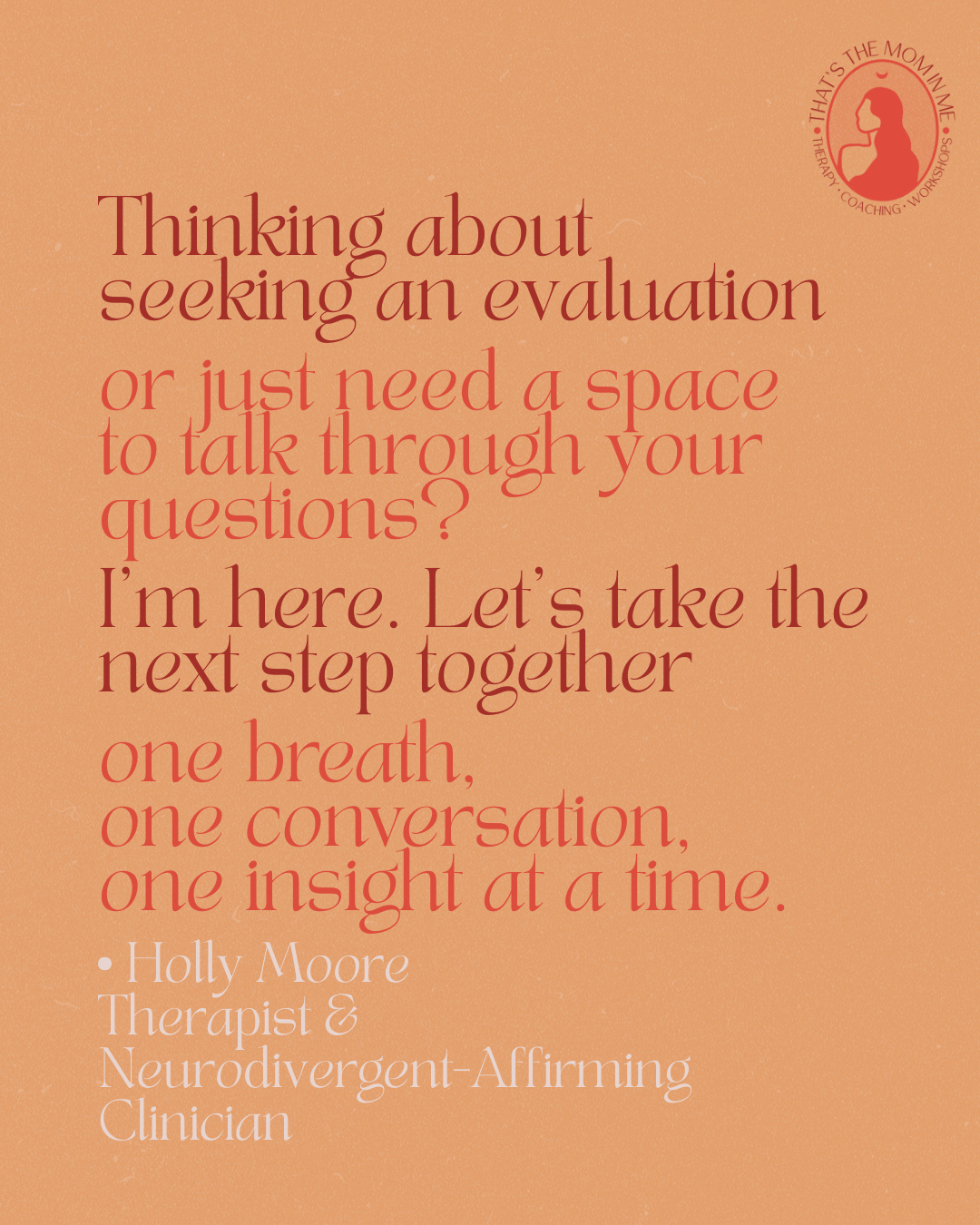"My Child Has Autism—Do I?"
A Therapist’s Reflection During Autism Awareness Month
It’s Autism Awareness and Acceptance Month—something I often wish stretched into every day of the year. In my office, I find myself sitting with parents who are doing the deep, courageous work of learning how to best support their autistic child. And more often than not, those conversations eventually circle back to a quiet, sometimes hesitant question:
"Could I be autistic too?"
If this thought has crossed your mind, you are not alone.
A Mirror of Understanding
As parents dive into the world of autism—reading, researching, observing their child—they often begin to notice familiar patterns in themselves. Maybe it’s a shared sensitivity to noise or change. Maybe it’s a lifelong tendency to “people-watch” rather than join in, or the way you’ve always found peace in routine, books, or deep interests.
There’s a quiet realization that the way you’ve always been might have a name.
That maybe you weren’t “just shy” or “quirky” or “socially awkward.” Maybe there’s more to the story.
Challenging the Myths
One of the gifts of raising an autistic child is that many parents begin to unlearn long-standing societal myths. You might have heard that autistic people don’t feel empathy (false), or that all autistic people are non-verbal (also false). As you see your child’s rich emotional world, unique ways of connecting, and vibrant intelligence, you begin to understand autism more deeply—and sometimes, see parts of yourself in the process.
As a therapist, part of my role is to hold space for this moment:
The questions. The wondering. The "what if?"
And sometimes, the anger, grief, or regret that follows—why didn’t I know sooner? What could have been different?
All of those feelings are valid. They deserve time, attention, and compassion.
So… Could It Be Autism?
First, let’s take a breath.
You may or may not be autistic. But your curiosity is valid, and it's okay to explore it.
50-95% Heritability
That means it’s not at all surprising that you might begin to see some of those traits in yourself as you learn more about your child.
That means it’s not at all surprising that you might begin to see some of those traits in yourself as you learn more about your child.
You might be reflecting on things like:
Lifelong social withdrawal or “masking”
A tendency to hyperfocus on specific interests or hobbies
Sensory sensitivities (certain sounds, lights, fabrics, textures)
Rigid thinking or difficulty with transitions
Repetitive behaviors or stimming
A strong need for structure and predictability
Still, these traits can also show up in other mental health conditions, like anxiety, OCD, or ADHD. The point isn’t to self-label, but to gather information and get curious.
Want to Explore a Diagnosis? Here’s What to Know
If you decide to explore the possibility of an autism diagnosis, here are a few key steps to consider:
1. Find a Qualified Evaluator
Look for a clinician who specializes in adult autism evaluations. They may hold a Master’s or Doctoral degree in psychology or a related field. Not every therapist or psychologist is trained in autism diagnostics—just like not every doctor treats the same conditions.
2. Ask the Right Questions
When you reach out to a provider, here are a few helpful things to ask:
What tools do you use for autism evaluations in adults?
Do you use evidence-based assessments like the ADOS-2 (Autism Diagnostic Observation Schedule, Second Edition) or the DIDI (Developmental, Dimensional and Diagnostic Interview)?
Is your evaluation process tailored for adult presentations, especially in women and those assigned female at birth, who are often underdiagnosed?
3. Expect a Comprehensive Process
A thorough evaluation should include:
Interviews (both personal and developmental history)
Behavioral observations
Self-report and third-party rating scales
Possibly input from someone who knew you as a child
Final Thoughts: It’s Never Too Late
Whether you pursue an evaluation or simply keep learning more about yourself, know this: there’s no expiration date on self-understanding. You deserve insight, support, and a space where your brain is celebrated—not just managed.
If you're wondering “Do I have autism?”—I want you to know that asking the question is brave. It's a step toward self-compassion. And whether or not the answer is “yes,” the exploration alone can be healing.



